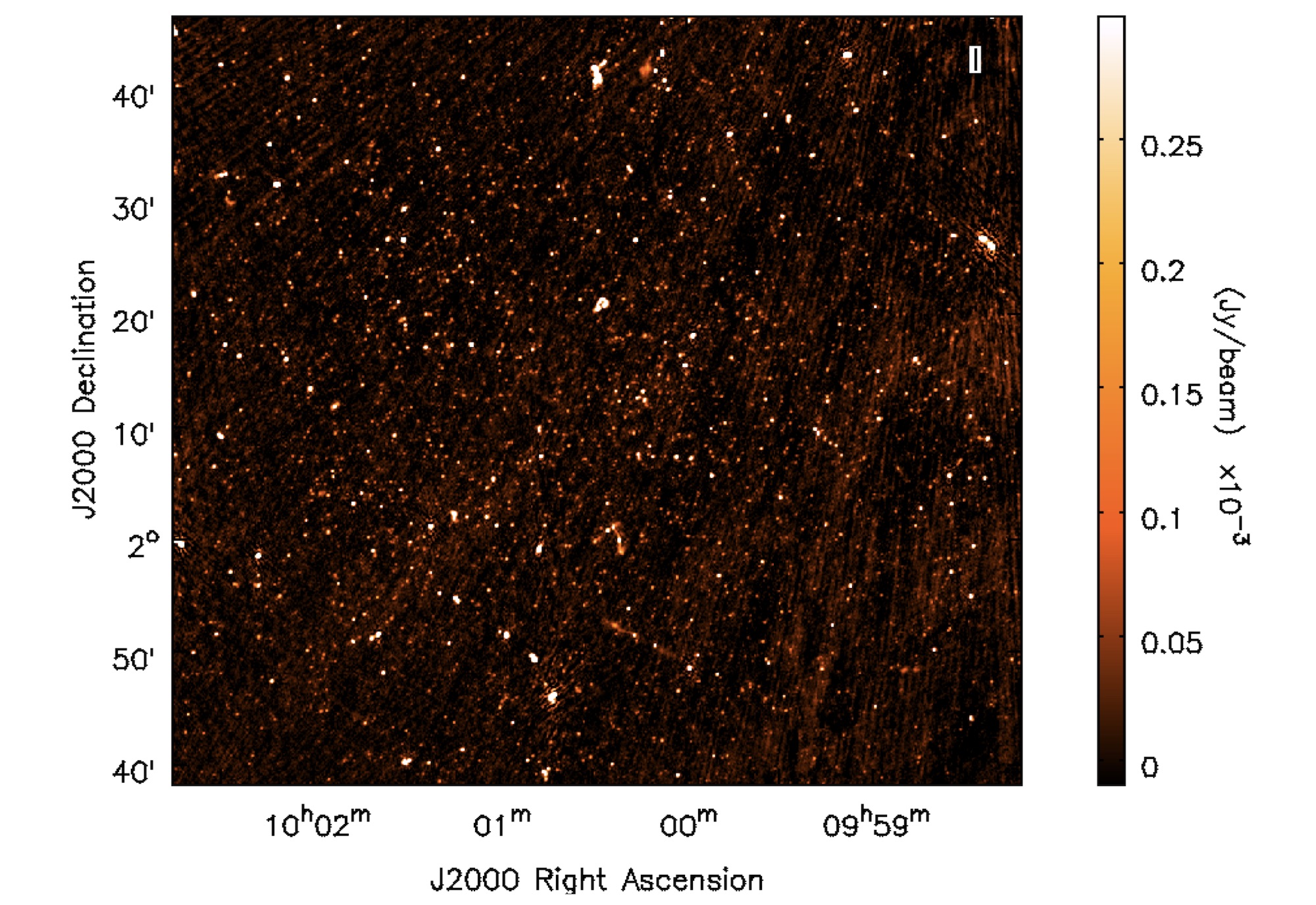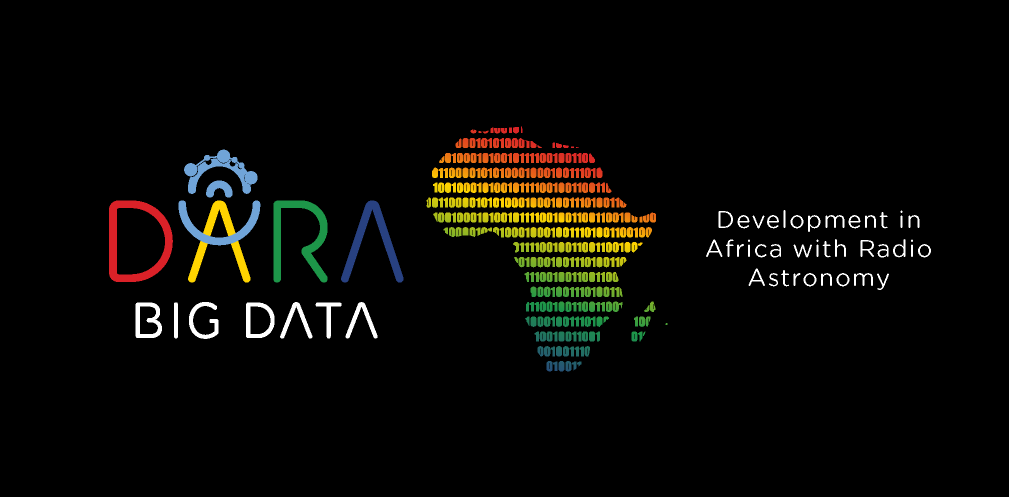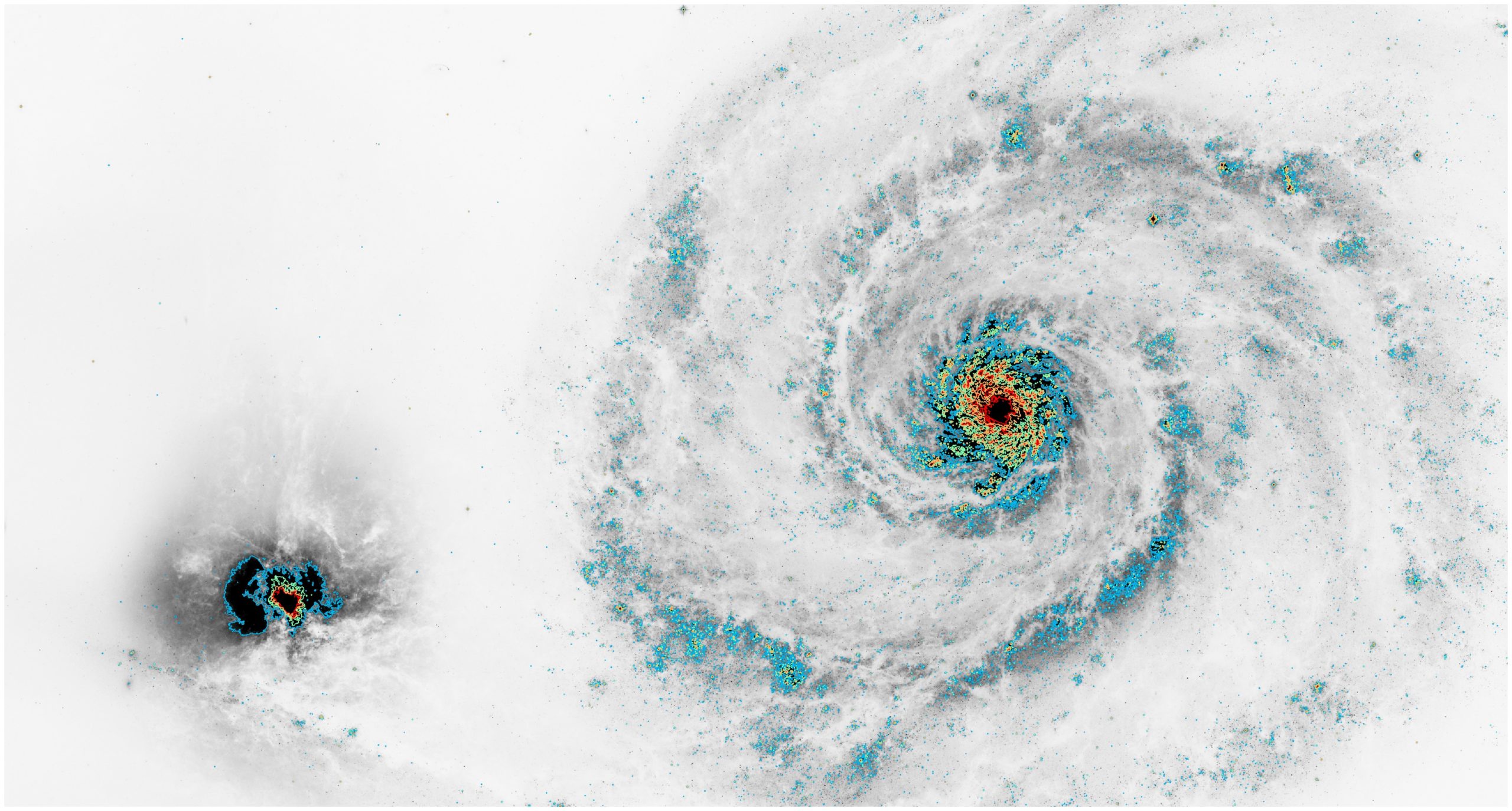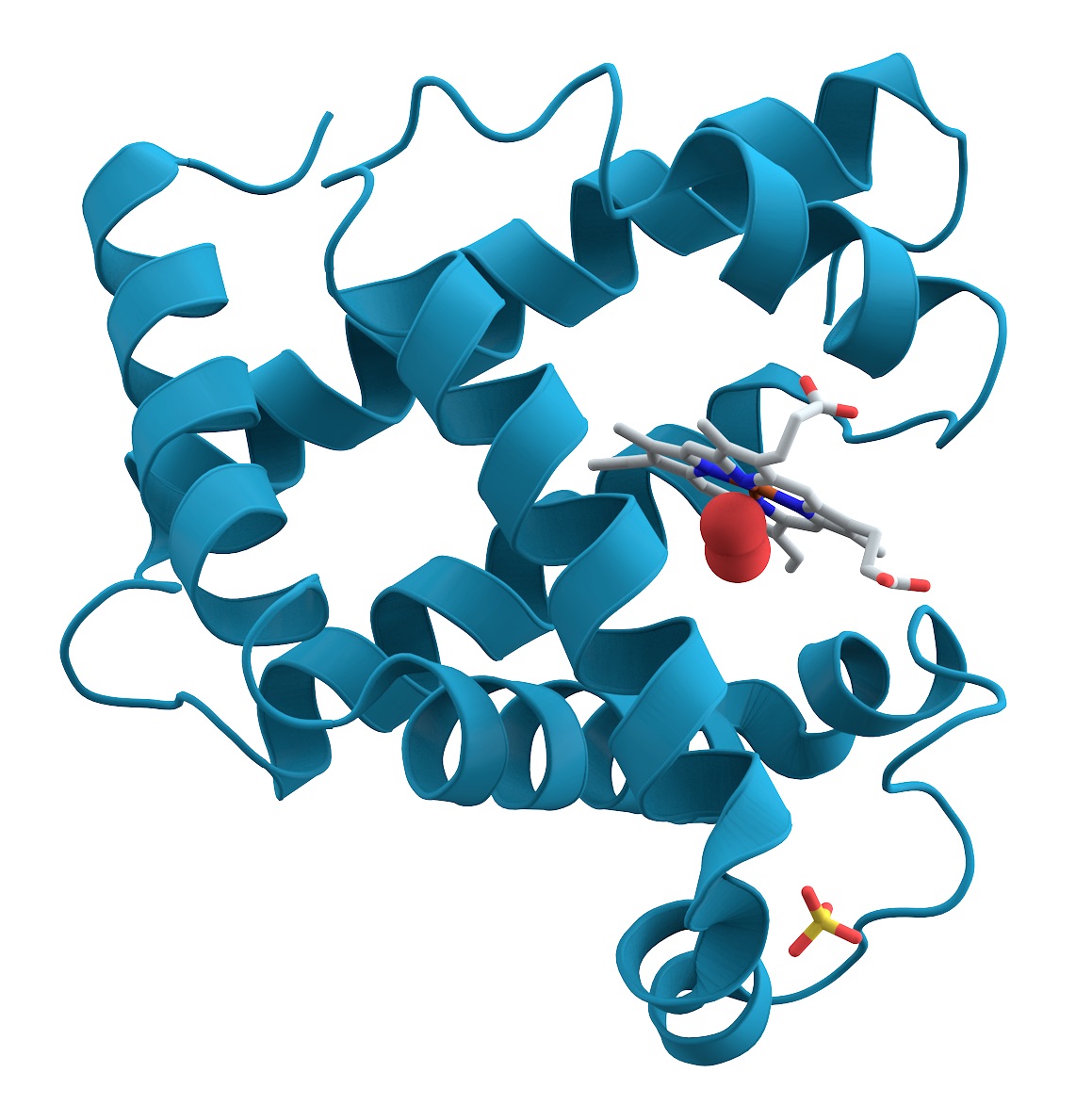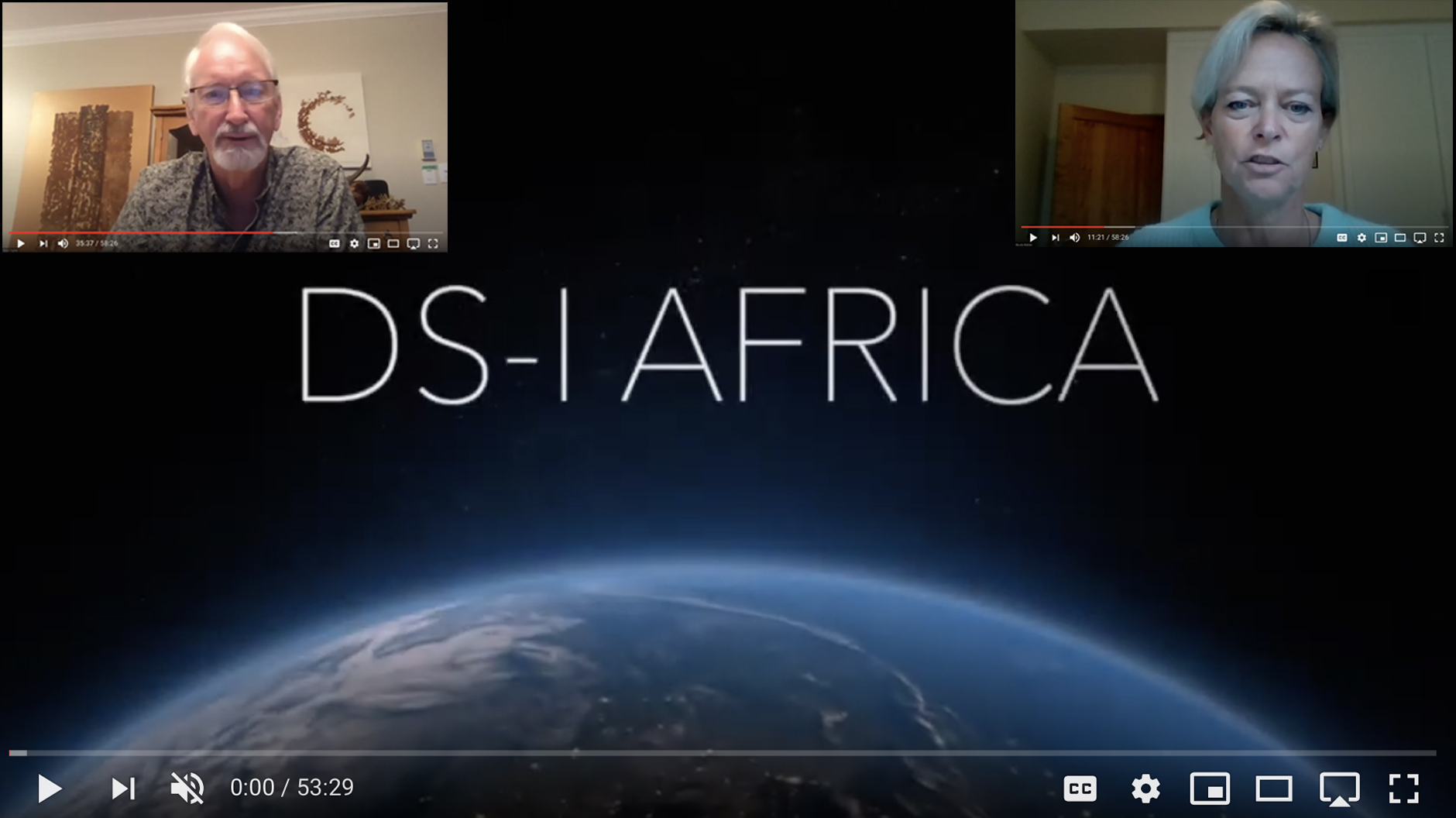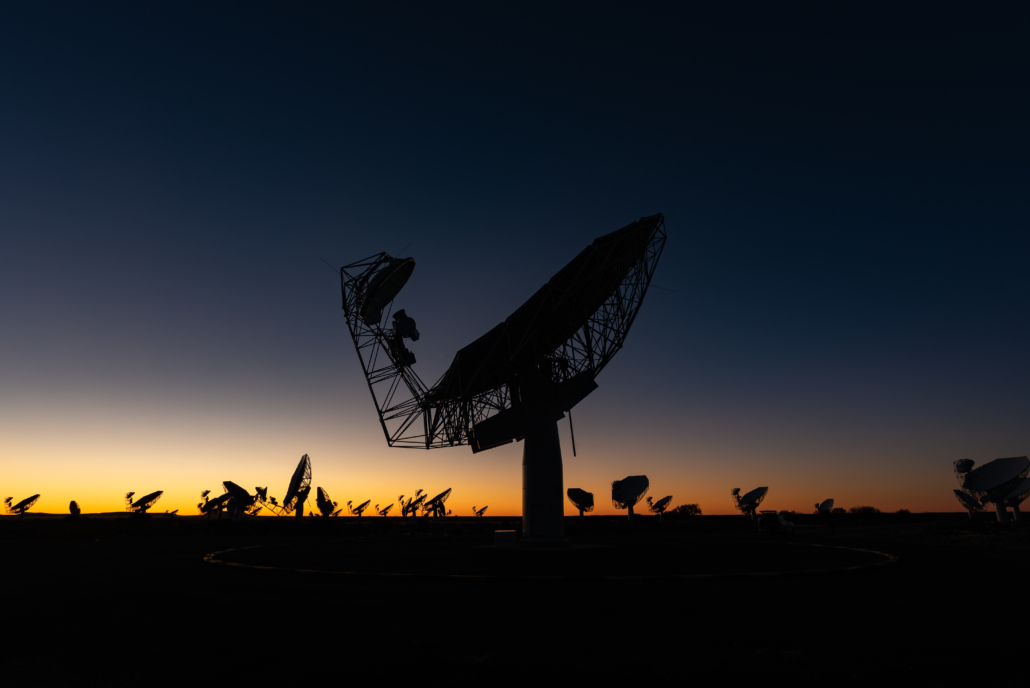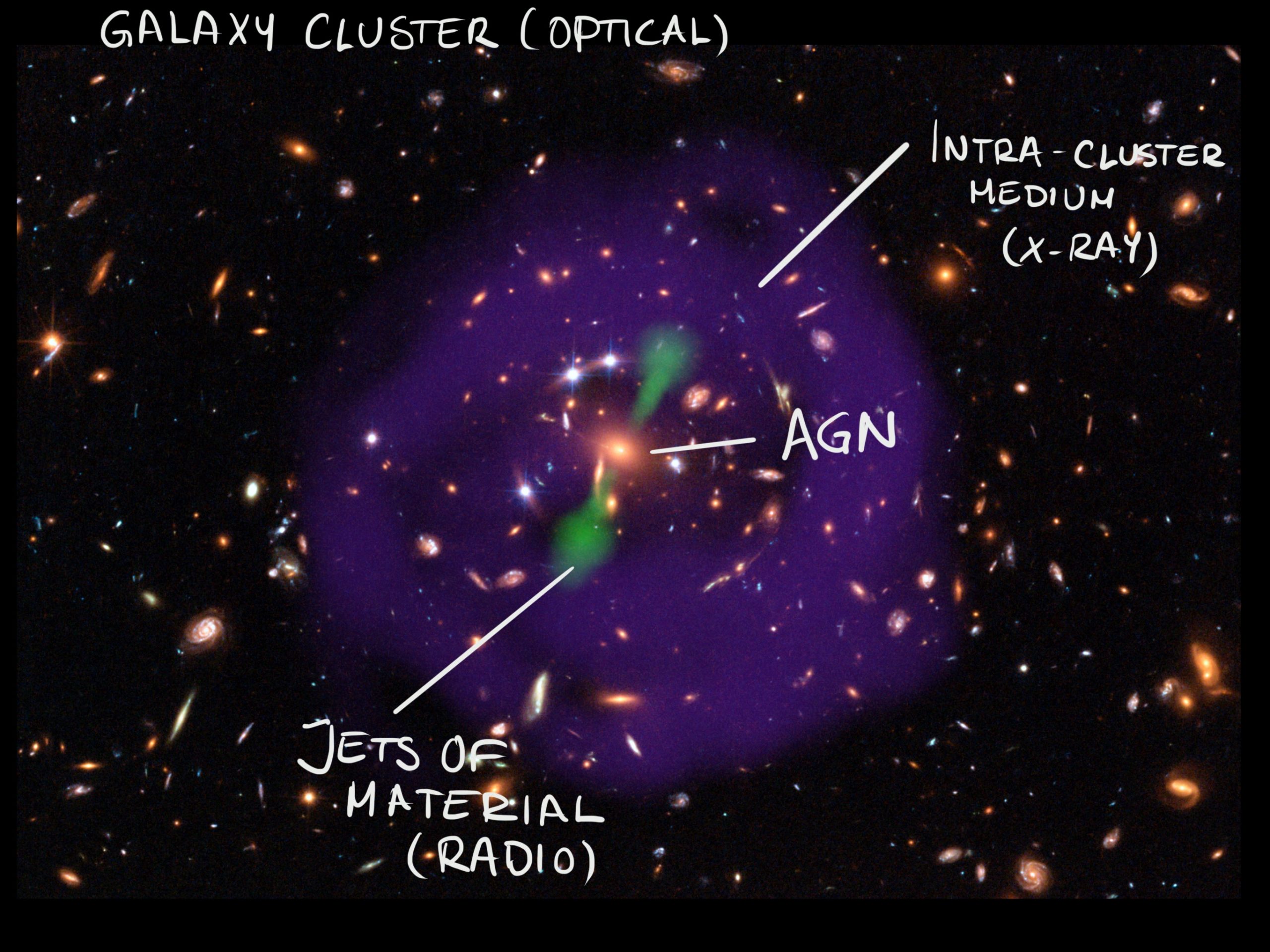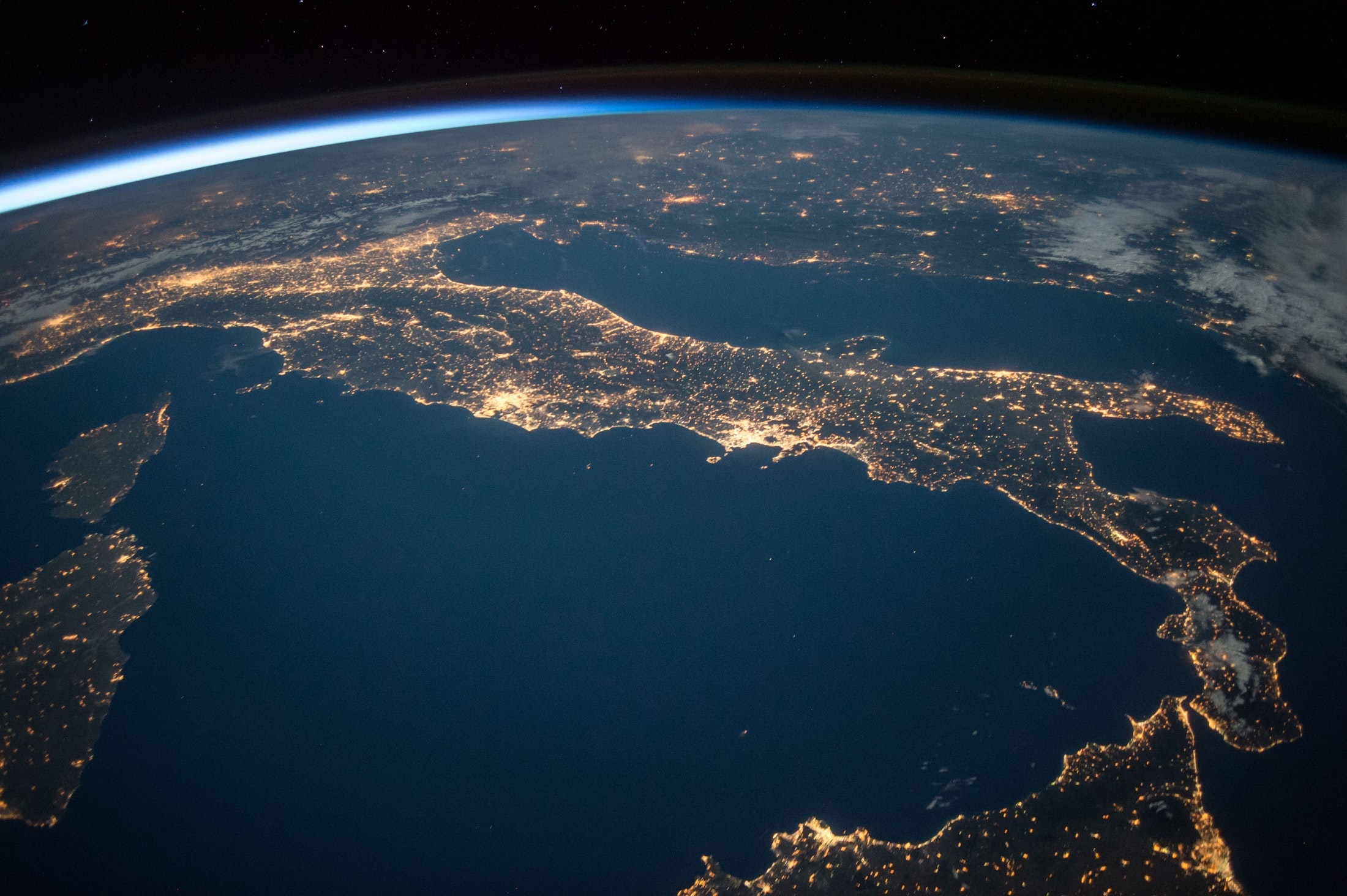New paper: Mapping neutral hydrogen with MeerKAT to understand the distribution of matter in the Universe
In the early universe, most matter as we know it was in the form of neutral hydrogen. Some of it is still lying around and is often seen because it absorbs light from galaxies further away, and obstructs our seeing. Neutral hydrogen was almost evenly distributed, but small differences in density were present. Mapping this neutral hydrogen, we are able … Read More

